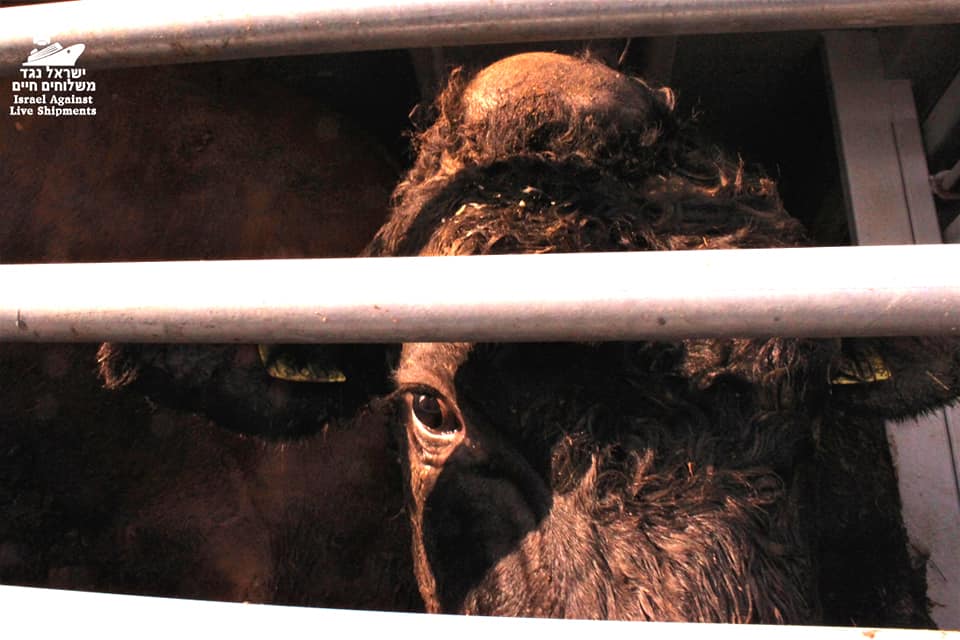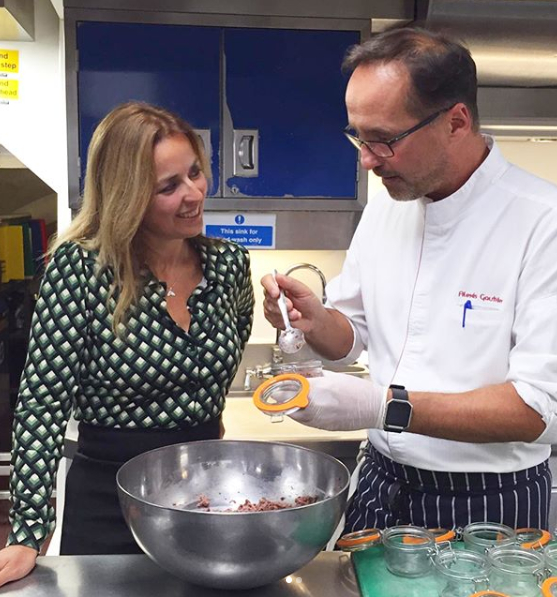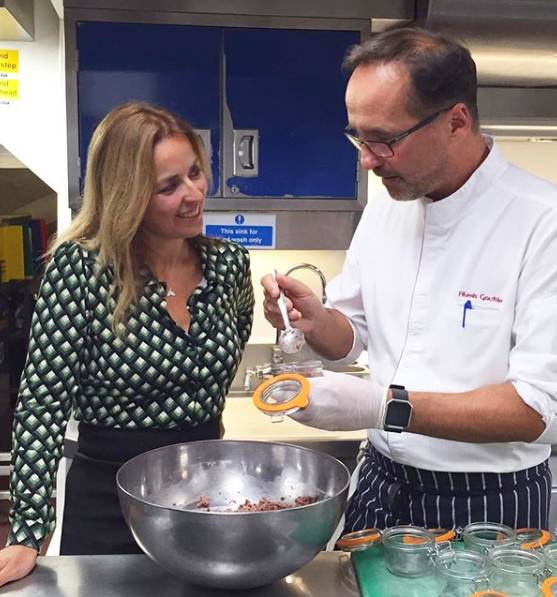Worldlog Marianne Thieme 4 de Setembro de 2018
The recess has finished. It was a busy recess because I am working on a new book about the importance of idealistic politics and on a new documentary together with our scientific bureau (the NGPF). I will tell you more about that later.
The fact that idealistic politics remains necessary was confirmed several times this summer. While summer often brings peace and joy for people, this summer was hell again for millions of animals. One of the most horrifying violations of animal welfare is the cruel transport of animals within and outside of Europe: animals that are transported from EU countries to countries like Turkey and Israel, travelling for days and sometimes weeks, who become overheated, dehydrated or die because they get jammed. Endless waiting times, for example at the Bulgarian-Turkish border, causes shocking and unacceptable animal suffering.

Millions of animals suffer during long transports
Approx. 23 million of day-old chicks are transported by plane from the Netherlands to other countries every year. And from Belgium even more than 100 million chicks get transported. Sometimes, the abominations that take place with that make the news, such as the twenty thousand of chicks that were found dehydrated, grilled and gassed in their transport container at the Belgian airport Zaventem. This is only the tip of the iceberg.
The Party for the Animals wants to stop such suffering of animals as soon as possible. For that reason, we have asked for attention for these unjustified actions in different ways this summer, both in the Netherlands and in Europe. We asked the responsible Dutch minister and the European Commission critical questions. Our MEP Anja Hazekamp portrayed the violations of European agreements on animal transports at the ports of Slovenia and Croatia: animals on transports die because of the heat, weak animals were forced on board with violence, there were no vets and regulations were not observed.

This summer there was a lot of animal suffering in the Netherlands too: on the 18th of July, 1,200 pigs died because of suffocation. The ventilation system was defective, the alarm did not work, and the owner tried to hide these sad circumstances. In the Netherlands, piglets are fattened mechanically for slaughter. Food, water, ventilation: everything is fully automatic and there is no human intervention at all. The air the animals have to live in is poisoned, so if the ventilation system breaks down there is nobody to rescue the animals.
Luckily, people are increasingly opposing to the way animals are treated. Residents try to block the arrival of a megastable in their vicinity more frequently. On the 25th of August, people organised the first Animal Rights March in the Netherlands and they demanded to stop the exploitation of animals. The march took place in various cities in countries such as Luxembourg, New Zealand, the Philippines and Canada.
And there are more positive developments: companies such as WeWork (6,000 employees) have stopped serving meat and many more educational institutions are changing to vegetable food. The German Minister of the Environment recently decided that vegetarian meals will be served during all official government events. The products must then preferably be organic, from the current season, local and/or fair trade. That is how it should be: the government must set the right example. That is why I have also asked the Dutch government to change to vegetable catering.

Marianne visiting vegan Michelin star chef Alexis Gauthier
And that it is simple to eat delicious vegetable food was evidenced by my visit to Alexis Gauthier, vegan and French Michelin star chef, who has his restaurant in London. His foie gras – causing much animal suffering – used to be really famous, but he never wants to make it again. Gauthier now has a vegetable version, the “faux gras”, based on lentils, walnuts and shallots. It is just so nice and so free from animal suffering.
In Gauthier’s restaurant I interviewed scientist Marco Springmann of Oxford University, who told me why it is better not to eat any animal products. The interview is for our new documentary, which will be released at the start of next year. To be continued!
Until the next time.
Marianne
O recesso terminou. Foi um recesso movimentado porque estou a trabalhar em um novo livro sobre a importância da política idealista e em um novo documentário em conjunto com nosso departamento científico (o NGPF). Eu vou falar mais sobre isso depois.
O fato, de que uma política idealista continua sendo necessária, foi confirmado várias vezes neste verão. Enquanto o verão muitas vezes traz paz e alegria para as pessoas, este verão foi novamente o inferno para milhões de animais. Uma das mais terríveis violações do bem-estar animal é o cruel transporte de animais dentro e fora da Europa: animais que são transportados de países da UE para países como Turquia e Israel, viajando por dias e às vezes semanas, que ficam superaquecidos, desidratados ou morrem por ficarem presos uns aos outros . Adicione ao sofrimento, os tempos de espera sem fim, por exemplo, na fronteira búlgara-turca, causam sofrimento animal inaceitável e chocante.

Milhões de animais sofrem durante transporte por longos períodos
Aproximadamente 23 milhões de pintinho com um dia de vida são transportados de avião da Holanda para outros países todos os anos. E da Bélgica até mais de 100 milhões de pintinhos são transportados. Às vezes, as abominações que acontecem com essa prática aparecem no noticiário, como os vinte mil pintinhos que foram encontrados desidratados, queimados e intoxicados com gases em um contêiner de transporte no aeroporto belga Zaventem. Esta é apenas a ponta do iceberg.
O Partido para os Animais quer parar o sofrimento dos animais o mais rápido possível. Por essa razão, pedimos atenção para essas ações injustificadas de diferentes maneiras neste verão, tanto na Holanda quanto na Europa. Perguntamos ao ministro holandês responsável e à Comissão Europeia questões críticas ao caso. A eurodeputada Anja Hazekamp retratou as violações dos acordos europeus de transporte de animais nos portos da Eslovénia e da Croácia: animais em transportes morrem por causa do calor, animais fracos foram forçados a bordo com violência, não houve veterinários e regulamentos não foram observados.

Neste verão, houve também muito sofrimento de animais na Holanda: no dia 18 de julho, 1.200 porcos morreram por causa de sufocamento. O sistema de ventilação estava com defeito, o alarme não funcionava e o proprietário tentou esconder essas tristes circunstâncias. Nos Países Baixos, os leitões são engordados mecanicamente para abate. Comida, água, ventilação: tudo é totalmente automático e não há intervenção humana. O ar que os animais têm para viver é envenenado, por isso, se o sistema de ventilação quebrar, não há ninguém para resgatá-los.
Felizmente, as pessoas estão cada vez mais a se opor à forma como os animais são tratados. Com ais frequência, moradores tentam bloquear a chegada de um mega estábulo em suas vizinhanças. No dia 25 de agosto, pessoas organizaram a primeira Marcha dos Direitos dos Animais na Holanda e exigiram a interrupção da exploração de animais. A marcha aconteceu em várias cidades de países como Luxemburgo, Nova Zelândia, Filipinas e Canadá.
E há mais desenvolvimentos positivos: empresas como a WeWork (6.000 funcionários) deixaram de servir carne e muitas outras instituições educacionais estão a mudar para alimentos vegetais. O ministro alemão do Meio Ambiente decidiu recentemente que as refeições vegetarianas serão servidas durante todos os eventos oficiais do governo. Os produtos devem ser preferencialmente orgânicos, da época atual, local e/ou comércio justo (fair-trade). É assim que deve ser: o governo deve dar o exemplo certo. É por isso que pedi também ao governo holandês que faça parte dessa mudança e altere as refeições em seus eventos oficiais.

Marianne a visitar o chef Michelin Alexis Gauthier (vegano)
E que é simples comer comida vegana deliciosa foi evidenciado pela minha visita a Alexis Gauthier, chef francês, vegano e estrela Michelin, que tem seu restaurante em Londres. Seu foie gras – a causar muito sofrimento animal – costumava ser muito famoso, mas ele afirma que nunca mais quer fazer o referido prato. Gauthier agora tem uma versão vegana, o “faux gras”, à base de lentilhas, nozes e chalotas. É tão gostoso e tão livre de sofrimento dos animais.
No restaurante de Gauthier, entrevistei o cientista Marco Springmann, da Universidade de Oxford, que me disse o porquê que é melhor não comer nenhum produto de origem animal. A entrevista é para o nosso novo documentário, que será lançado no início do próximo ano. Continua!
Até a próxima vez,
Marianne